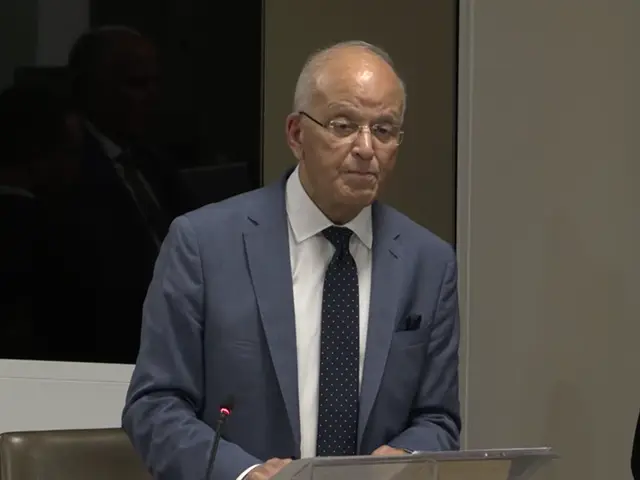Support quality, independent, local journalism…that matters
From just £1 a month you can help fund our work – and use our website without adverts. Become a member today

Wales ranks 21st out of 26 high-income countries for stroke outcomes, lagging significantly behind the rest of the UK, a surgeon-turned-Senedd Member has warned.
Altaf Hussain blamed the poor performance on the Welsh Government’s failure to run a national “Act FAST” awareness-raising campaign in recent years.
The Conservative, who chairs the Senedd’s cross-party group on stroke, relayed the story of Fran – a survivor who did not recognise the signs she was experiencing a stroke.
Dr Hussain said: “Fran told us that had she recognised the signs and symptoms of stroke, she would have sought help sooner, got treatment sooner and recovered sooner.
“As it stands, Fran and so many people like her receive treatment too late and are left with lifelong disabilities. This is why the Act FAST/Cam NESA campaigns are so vital.”
‘One of Wales’ biggest killers’
Dr Hussain, a retired consultant orthopaedic surgeon, criticised a “lack of will” from Public Health Wales to implement campaigns which have proved successful over the border.
Leading a short debate in the Senedd on October 15, he pointed to “huge clinical support and clinical need for a renewed Welsh awareness campaign”.
He said: “The FAST campaign supports prevention messaging by educating the public about the warning signs, which can lead to earlier detection and management of underlying risk.”
One of the UK’s leading stroke consultants told Dr Hussain he would “absolutely support” a renewed focus in Wales, stating “public awareness is an absolute must”.
The Tory warned stroke is one of Wales’ biggest killers, costing the health service £220m a year, with an estimated economic impact of £1.6bn a year.
‘We can’t afford to do nothing’
He told the Senedd: “We can’t afford to do nothing. Not only will thousands of people continue to die, but… the cost to the economy could rise to £2.8bn by 2035.”
Dr Hussain compared the average time it takes for a stroke patient to get to hospital in Wales (six hours, 41 minutes) versus England (around four hours).
He said Wales sits 21st out of 26 high-income countries, with England, Scotland and Northern Ireland in joint 13th, asking: “Why are we doing so much worse?”
Janet Finch-Saunders, a fellow Tory, said one of her Aberconwy constituents – in her late 80s – waited nearly five hours for an ambulance to arrive after a suspected stroke.

She asked: “What happened to the one hour golden rule?”
Labour’s Mike Hedges made the point that a stroke can happen at any age, sharing the story of his Swansea neighbour – a woman in her early 30s who had a stroke.
‘Wales is leading the way’
Jeremy Miles, Wales’ health secretary, disputed the Conservatives’ claim that no campaign exists, pointing to stroke awareness materials in surgeries, hospitals and pharmacies.

Mr Miles argued Wales has “led the way” on stroke treatment, with technology advances such as the use of AI in stroke centres to speed up accurate diagnosis and treatment.
The health secretary told the Senedd that Wales was the first country to use both AI and pre-hospital video triage together to improve patient outcomes.
He defended regional stroke centres and pointed to evidence that centralising specialist services is the “best way of ensuring that your constituents and mine survive stroke”.
Mr Miles committed to reviewing the situation, stating he has asked his officials to provide advice on the practicalities of running the Act FAST campaign in Wales again.
Report by the ICNN Senedd Reporter scheme
Support quality, independent, local journalism…that matters
From just £1 a month you can help fund our work – and use our website without adverts.
Become a member today
